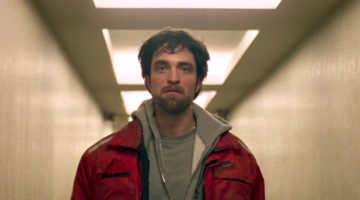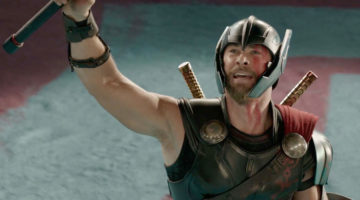Review: The Purge: Anarchy
The second film in what looks to be a lengthy series of perennial unimaginative chaos is just as its title suggests: anarchic.
It’s not as the filmmakers intended however, as The Purge: Anarchy is sloppy with its storytelling and weak-willed when it comes to meaning and metaphor. Written and directed by James DeMonaco, who also penned and helmed the first installment released only last summer, this meandering exercise in desensitization widens the scope in what could-be a violent thriller, but fails to bring any creativity to a clever premise.
In case you missed it the first time around, in the not-so distant future, a new America with new Founding Fathers allows for crime (in the film, we only witness murder) to be committed across a 12-hour period on the first day of Spring. Once purged, apparently American society carries on with record-low crime and unemployment the rest of the year.
Well, as this film occasionally pontificates, it’s because it’s the poor people who are purging and getting purged; the rich and powerful lock themselves up (or engage in some sick elitist form of purging), while the ghettos and impoverished areas are ‘cleansed.’
But this sequel doesn’t have any conviction with its protest – we see a dead stock broker hanging from a building as an omen, but The Purge: Anarchy only pokes and prods, nodding to income inequality, instead of stirring the audience in any way.
The violence is omnipresent, but also similarly ineffectual. What’s more, the absurd dialogue and thinly-drawn characters make for more laughter than is certainly intended. You can allow for the basic premise of annual Purge, but really, who is out driving just a few hours before it begins? Why aren’t you locked up or on vacation?
Our protagonists are a quintet of unfortunate souls – a financially-strapped mother and daughter dragged from their home, a bickering couple with car trouble, and a vengeful, fully-armed father (Frank Grillo, as the rugged male lead)- who cross paths on the fateful evening, trying to survive the chaos and death all around them.
Like the first film, Anarchy lacks the will to reach of the potential of this futuristic conceit. While the ending is more satisfying (despite once again trying to posit a moral discussion), scenes seem to take place at random and end suddenly: there is a car chase, a jaunt through a tunnel, an apartment shootout, and then our protagonists end up in an arena where they are hunted.
The Purge bills itself as ‘an American tradition,’ so there looks to be more on the way, especially with endless possibilities for storylines and the small budget it takes to churn out these films. For all the potential diversions, Anarchy plays it safe, silly, and superficial. Were it to be the least bit potent and have something to say, the film might linger; instead, The Purge will once again likely be wiped clean and forgotten as soon as the credits roll.
[star v=2]




